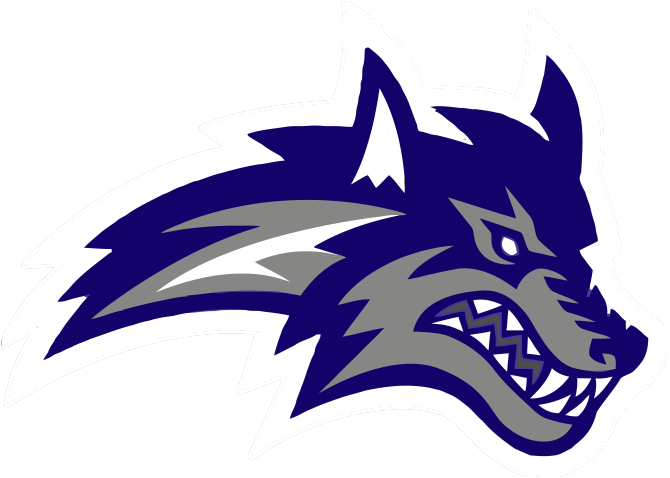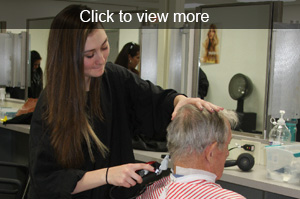CTE & NAVIT
Career Search
The websites listed below are a great resource to show the pay, training, education, growth rates, etc. of any job.
Contact Information
Camalee West
CTE Director/NAVIT/Dual Enrollment
camaleew@snowflake.k12.az.us
Click HERE for frequently asked CTE/NAVIT questions and answers!
It is the policy of the Snowflake Unified School District to maintain a non-discriminatory learning environment and to ensure that students are free from discrimination in any District or CTE supported program or activity on the basis of race, color, ethnicity, national origin, gender, religion or disability.
Student-to-Work Program
**CTE Programs at Snowflake High School**
Business, Drafting, Coding, Construction, Film and TV, Graphic Design, Law and Public Safety, Digital Printing, Digital Photography, and Network Security are two-year programs at SHS. A student must complete 2 years or 2 credits to be considered a completer.
Agriscience is a three-year program. A student must complete 3 years or 3 credits to be considered a completer.
Earn a Math or Science Credit in a CTE Class!
Earn a math credit in a CTE class!!
The CTE Department has exciting news to share with Snowflake High School students. Students can now meet their 4th math requirement in one of four CTE courses offered at SHS. The criteria to meet your 4th math credit by completing a CTE program are explained below.
1. Four of our CTE programs qualify for math credit.
Construction, Business Management, Architectural Drafting, and Coding.
2. A student must complete one of the CTE programs listed below. For example – if a student wants to earn the 4th math credit in Business Management - the student must take Business I and Business II.
Construction I & II, Business Management I & II, Architectural Drafting I & II, and Coding I and II.
3. A student must complete Algebra II by their junior year to qualify. If a student must take Algebra II during their senior year – that student will not qualify for this program.
4. Please let guidance know if you will be earning a math credit in a CTE program.
5. **VERY IMPORTANT**
When a student meets this math requirement it does not take away the number of credits that need to be earned for graduation. This program allows students to meet their math requirements without taking the 4th math class. The requirement will be met by finishing the CTE program.
A student will then have an extra credit during their senior year. With the credit, the student can take another CTE class, or college class, or take advantage of the student-to-work program.
Earn a Science Credit in Agriscience
High school students must earn 3 science credits to graduate.
Students are eligible to earn 1 science credit if the student completes the Introduction to Agriscience, Plant Science, and Animal Science courses.
**VERY IMPORTANT** When a student meets the requirement it does not take away the number of credits that need to be earned for graduation. This just allows the student to meet their 3rd science requirement without taking 3 science classes. The requirement will be met by finishing the CTE program.
A student will then have an extra credit their senior year that they can take another CTE class, college class, or take advantage of the student-to-work program.
*****Please contact the guidance office or Mrs. West with any questions.
Career and Technical Education Programs and Snowflake High School
NAVIT
Northern Arizona Vocational Institute of Technology (NAVIT)
Northern Arizona Vocational Institute of Technology (NAVIT) provides high school students an opportunity to participate in career and technical education programs taught through Northland Pioneer College (NPC). While taking these courses students will earn elective credits at Snowflake High School and college credits from NPC. The enhanced programs provide students the opportunity to earn industry credentials and certificates. Only juniors and seniors can participate. Interested students must fill out an application with Mrs. West. We invite all interested to learn more about our variety of programs.
A+ Certification
This class is for juniors and seniors - 4 credits in high school.
Students will have the opportunity to earn an Industry Certificate in CompTIA IT Fundamentals, CompTIA A+ Certificate, and CompTIA Network+ Certificate.
1st Semester:
CIS 107: IT Fundamentals & ITF Certification Prep - 3 CreditsCIS 141: A+ Certification Preparation - 3 Credits
CIS 142: A+ Certification Preparation - 3 Credits
CIS 130: Information Security Fundamentals - 3 Credits
2nd Semester:
CIS 145: Network+ Certification Preparation - 3 Credits
CIS 161: Microsoft Operating System - 3 Credits
CIS 230: Operating System Security - 3 Credits
CIS 232: Network Security - 3 credits
Classes will be taught at NPC, Show Low, from 8:00 to 11:00 a.m. Monday through Friday.
The NAVIT program will pay tuition and fees.
Link to information about CompTIA certifications
Link to NPCs Computer Information Systems website
**Dual enrollment courses allow high school students to enroll in college-level courses and earn both high school and college credit simultaneously.
Students may take several Dual Enrollment courses at SHS and apply them toward a Certificate of Proficiency (CP), Certificate of Applied Science (CAS), or Associate of Applied Science (AAS).
Administration of Justice
Administration of Justice – (seniors only, 4 credits high school)
Students who complete the Administration of Justice course will be qualified to test for APCO Certification-Public Safety Telecommunicator-Dispatch.
Northland Pioneer College (NPC) credit students will receive:
1st Semester:
AJS 101: Intro to Administration of Justice - 3 credits
AJS 230: The Police Function - 3 credits
AJS 124: Ethics and the Administration of Justice- 3 credits
AJS : Skills Practicum I - 3 credits
EMT 104: First Aid/ CPR
2nd Semester:
AJS 275: Criminal Investigation- 3 credits
AJS 240: The Correction Function - 3 credits
AJS 106: Public Safety Telecommunicator - Dispatch - 3 credits
AJS : Skills Practicum II - 3 credits
Classes will be taught at NPC, Snowflake, from 8:00 to 11:00 a.m. Monday through Friday.
The NAVIT program will pay tuition and fees for the class.
Link to NPC with more information about AJS
**Dual enrollment courses allow high school students to enroll in college-level courses and earn both high school and college credit simultaneously.
Students may take several Dual Enrollment courses at SHS and apply them toward a Certificate of Proficiency (CP), Certificate of Applied Science (CAS), or Associate of Applied Science (AAS).
Automotive
Auto Technology I, II – (for juniors/seniors, 4 credits high school)
Auto Technology III, IV – (for seniors, 4 credits high school)
This is an Automotive Service Excellence (ASE) National Automotive Technicians Education Foundation (NATEF) certified program designed for the student who is serious about a career in the automotive industry. Students completing this program would be eligible for ASE certification in the following areas: electronics/electronic systems, engine performance, brakes, suspension & steering, engine repair, heating & air conditioning, manual drive train and axles, and automatic transmissions.
The curriculum includes computer modules and simulator practice that coincide with each certification and hands-on training using donated and patron vehicles.
Northland Pioneer College (NPC) credit students will receive:
1st Semester:
ATO 116: Intro to Automotive Safety - 2 credits
ATO 118: Electrical I - 3 credits
ATO 120: Electrical II- 3 credits
ATO 122: Electrical III - 3 credits
2nd Semester:
ATO 124: Engine Repair- 3 credits
ATO 126: Engine Repair II - 3 credits
ATO 128: Engine Performance I - 3 credits
ATO 130: Engine Performance II - 3 credits
3rd Semester:
ATO 216: Suspension and Steering - 4 credits
ATO 218: Automatic Transmission - 4 credits
ATO 226: Automotive Diesel - 4 credits
4th Semester:
ATO 220: Manual Transmission - 4 credits
ATO 222: Brake Systems- 4 credits
ATO 224: HVAC Systems- 4 credits
Students rotate through the following courses over a four-semester sequence.
Periods that the class will meet:
Classes will be taught at NPC, Show Low, from 8:00 to 11:00 a.m. Monday through Friday.
The NAVIT program will pay tuition and fees for the class.
Automotive technology program credits may be applied toward a certificate of applied science or an associate of applied science degree at Northland Pioneer College.
**Dual enrollment courses allow high school students to enroll in college-level courses and earn both high school and college credit simultaneously.
Students may take several Dual Enrollment courses at SHS and apply them toward a Certificate of Proficiency (CP), Certificate of Applied Science (CAS), or Associate of Applied Science (AAS).
CNA ( Certified Nursing Assistant)
Seniors, 2 credits high school
CNA is one-semester. Students can choose the fall or spring semester.
During this course, students will learn how to provide basic care to patients in residential care facilities. This course will qualify students to take the Arizona State Board of Nursing Exam to become certified or licensed nursing assistants (CNA/LNA). Students are required to have a TB test, provide a DPS fingerprint clearance card, as well as purchase scrubs and several other supplies to participate in the program. NAVIT will pay for tuition, books, and fees. Students are also required to pay for the state board exam.
Courses are taken at Northland Pioneer College:
NAT 101: Nursing Assistant (5 credits)
HES 170: Medical Terminology (3 credits)
HES 145: (3 credits)
EMT 104: CPR & First Aid (.5 credits)
Periods that the class will meet:
Some classes may be taught at NPC, Show Low, from 8:00 to 11:00 a.m. Monday through Friday.
Some classes will be taught at SCC, Snowflake, from 8:00 to 11:00 a.m. Monday through Friday.
District transportation is available for Show Low classes help at NPC. Students must provide their transportation to the SCC campus and all clinical locations.
The NAVIT program will pay tuition and fees for the class.
Clinicals will start halfway through the semester. They are usually in Show Low or Pinetop.
Information about CNA from NPC
**Dual enrollment courses allow high school students to enroll in college-level courses and earn both high school and college credit simultaneously.
Students may take several Dual Enrollment courses at SHS and apply them toward a Certificate of Proficiency (CP), Certificate of Applied Science (CAS), or Associate of Applied Science (AAS).
Cosmetology
Cosmetology I, II - (for juniors/seniors, 4 credits high school)
Cosmetology III, IV - (for seniors, 4 credits high school)
Shampooing/conditioning/deep condition, haircutting, permanent waving, highlighting/coloring, and relaxing. In addition, they will learn to braid, flat iron, curl, and design hairstyles. They will also have an introduction to nails and skin.
Related occupations include hair color specialists, texture specialists, cutting specialists, salon trainers, nail technicians, cosmetology instructors, film or theatrical hairstylists and editorials, manicurists/pedicurists, skin care specialists, braid technicians, and platform artists.
Students must complete the state requirement of 1,100 clock hours in the hairstyling classroom.
Students may opt to complete the cosmetology program with a state requirement of 1,600 hours. Students may use their hairstyling hours toward their cosmetology license.
Courses are taken at Northland Pioneer College:
1st Semester:
COS 142: Introduction to Hair Care - 6 credits
COS 143: Introduction to Basic Skin Care - 2 credits
COS 144: Introduction Basic Nail Care - 2 credits
2nd Semester:
COS 145: Law & Ethics for a Beauty Professional - 3 credits
COS 146: Scientific Concepts I - 3 credits
COS 231: Advanced Hair Care I - 3 credits3rd Semester:
COS 107: Business Skills I - 3 credits
COS 232: Advanced Hair Care II - 3 credits
COS 147: Scientific Concepts II - 3 credits
4th Semester:
COS 108: Business Skills II - 3 credits
COS 233: Advanced Hair Care III - 3 credits
COS 240: Prepare for Licensure - 2 credits
Periods that the class will meet:
Classes will be taught at NPC, Show Low, from 8:00 to 11:00 a.m. Monday through Friday.
The NAVIT program will pay tuition and fees for the hairstyling program (1100 hours). Students who opt to finish the cosmetology program (1600 hours) must pay for an additional 500 hours.
Student’s costs for the program:
Students must pay a $400 deposit for cosmetology and supplies which can be reimbursed upon completion of the State Board Exam.
Hairstyling/cosmetology program credits may be applied toward a certificate of applied science or an associate of applied science degree at Northland Pioneer College. Completing the certificate of proficiency prepares students to meet the state licensure examination requirement.
Information about Cosmetology from NPC
**Dual enrollment courses allow high school students to enroll in college-level courses and earn both high school and college credit simultaneously.
Students may take several Dual Enrollment courses at SHS and apply them toward a Certificate of Proficiency (CP), Certificate of Applied Science (CAS), or Associate of Applied Science (AAS).
Fire Fighting I, II
This class is for seniors only - 4 credits high school.
The fire science program, in cooperation with the State Fire Marshal’s Office and the fire departments throughout the NAVIT district, trains fire department personnel in firefighting operations and the use of equipment. The firefighter is an indispensable asset to the small and rural communities within the district. Those persons seeking career opportunities should understand that a greater number of jobs exist in all metropolitan and suburban areas of the state as well as the nation.
Employment areas related to firefighting include fire inspectors, arson investigation, fire prevention specialists, insurance investigators, hazardous material specialists, business/industry fire protection system engineers, etc.
Northland Pioneer College (NPC) credit students will receive:
1st Semester:
FRS 103: Firefighter I - 6 credits
FRS 126: Rope Rescue I - 1 credit
FRS 127: Rope Rescue II - 1 credit
FRS 128: Rope Rescue III - 1 credit
FRS 130: Incident Command System - 1 credit
FRS 150: Wildland Firefighter - 2 credits
FRS 203: Fire Prevention - 3 credits2nd Semester:
FRS 105: Firefighter II - 4 credits
FRS 110: HazMat. For First Responder - 2 credits
FRS 139: Confined space Operations - 3 credits
FRS 201: Fire Protection Systems - 3 credits
FRS 208: FRS 208 Principles of Fire & Emerg - 3 credits
Periods that the class will meet:
Classes will be taught at NPC, Taylor, from 7:40 to 10:40 a.m. Monday through Friday.
Classes will be held at the NPC Jake Flake Emergency Services Training Center in Taylor.
Students must provide their transportation to and from the program.
The NAVIT program will pay tuition and fees for the class.
Fire science program credits may be applied toward a certificate of applied science or an associate of applied science degree at Northland Pioneer College.
Information about Fire Science from NPC
**Dual enrollment courses allow high school students to enroll in college-level courses and earn both high school and college credit simultaneously.
Students may take several Dual Enrollment courses at SHS and apply them toward a Certificate of Proficiency (CP), Certificate of Applied Science (CAS), or Associate of Applied Science (AAS).
Industrial Technology Trades
ITT I, II - (for juniors/seniors, 4 credits high school)
ITT III, IV - (for seniors, 4 credits high school)
Upon completing this program students may earn NCCER HVAC Level 1, NCCER Industrial Maintenance E& I Level 1, and NCCER Industrial Maintenance Mechanic Level 1.
1st Semester:
ITT 101: Craft Skills Core Curriculum - 3 credits
ITT 110: Power Industry Fundamentals - 3 credits
ITT 210: Industrial Maintenance E&I Technician I Level 1- 3 credits
ITT 255: HVAC I Level 1 - 3 credits
2nd Semester:
ITT 211: Industrial Maintenance E & I Technician I level 2 -3 credits
ITT 256: HVAC I Level 2 - 3 credits
ITT 121 Alternative Energy Level 1 - 3 credits
ITT 122 Alternative Energy Level 2 - 3 credits
Classes will be taught at NPC, Show Low, from 8:00 to 11:00 a.m. Monday through Friday.
The NAVIT program will pay tuition and fees for the class.
**Dual enrollment courses allow high school students to enroll in college-level courses and earn both high school and college credit simultaneously.
Students may take several Dual Enrollment courses at SHS and apply them toward a Certificate of Proficiency (CP), Certificate of Applied Science (CAS), or Associate of Applied Science (AAS).
Medical Assistant
Medical Assistant I, II (for juniors/seniors, 4 credits high school)
Medical Assistant III, IV (for seniors, 4 credits high school)
The medical assistant program provides training in basic anatomy, physiology, and medical terminology. Administrative training includes courses in software application, word processing, medical transcription, insurance billing, and coding. In addition, students engage in laboratory training in phlebotomy, medication administration, electrocardiography, vital sign measurement, and preparation for physical and specialty exams. This program meets or exceeds the Arizona State Board of Medical Examiners' training requirements (R4-15-301 and R4-16-302).
Northland Pioneer College (NPC) credit students will receive:
1st Semester:
BUS 119: Medical Office Administrative Procedures - 3 credits
HES 145: Nutrition - 3 credits
HES 170: Medical Terminology - 3 credits
HES 101 (MAT101): Basic Technical Mathematics - 3 credits
HES099X: NAVIT Lab - 0 credits
2nd Semester:
HES 180: Basic Pharmacology - 3 credits
HES 190: Human Body in Health and Disease - 4 credits
HES099X: NAVIT Lab - 0 creditsHES 120: Law & Ethics of Health Care Professionals - 3 credits
3rd Semester:
BUS 231: Microsoft Office Level I - 3 credits
MDA 124: Clinical Procedures I - 5 credits
HES099X: NAVIT Lab - 0 credits
4th Semester
MDA 125: Clinical Procedures II - 5 credits
HES099X: NAVIT Lab - 0 creditsBUS 183: Electronic Medical Records - 3 credits
EMT 104: CPR & First Aid - .5 credits
Periods that the class will meet:
Some classes will be taught at NPC, Show Low, from 8:00 to 11:00 a.m. Monday through Friday.
Some classes will be taught at SCC, Snowflake, from 8:00 to 11:00 a.m. Monday through Friday.
District transportation is available for Show Low classes. Students must provide their own transportation to the SCC campus.
The NAVIT program will pay tuition and fees for the class.
Medical assistant credits may be applied toward a certificate of applied science or an associate of applied science degree at Northland Pioneer College.
Information about Medical Assistants from NPC
**Dual enrollment courses allow high school students to enroll in college-level courses and earn both high school and college credit simultaneously.
Students may take several Dual Enrollment courses at SHS and apply them toward a Certificate of Proficiency (CP), Certificate of Applied Science (CAS), or Associate of Applied Science (AAS).
Mental Health and Social Work
This class is for juniors and seniors - 4 credits in high school.
Upon completing this program students may earn Article 9, Psychological First Aid, and Mental Health Technician Certifications.
1st Semester:
BHS 110: Introduction to Social Work - 3 credits
BHS 140: Treatment and Planning - 3 credits
BHS 150: Behavioral Health Professions- 3 credits
BHS 155: Ethical Awareness - 3 credits
2nd Semester:
BHS 160: Case Management & Clinical Documentation -3 credits
BHS 170: Multicultural Competence - 3 credits
BHS 185: Professional Resiliency & Well-Being - 3 credits
BHS 199 Job Shadowing - 1 credit
BHS 200 Professional Skills & Certification - 3 credits
Classes will be taught at NPC, Snowflake, from 8:00 to 11:00 a.m. Monday through Friday.
The NAVIT program will pay tuition and fees for the class.
Link to NPC about Behavior Health Studies
**Dual enrollment courses allow high school students to enroll in college-level courses and earn both high school and college credit simultaneously.
Students may take several Dual Enrollment courses at SHS and apply them toward a Certificate of Proficiency (CP), Certificate of Applied Science (CAS), or Associate of Applied Science (AAS).
Sports Medicine
Sports Medicine – juniors or seniors (4 credits high school)
Students who complete the Personal Training and Rehabilitation Course will earn the following certifications: Certified Personal Trainer (CPT) and Certified Physical Therapy Aide (CPTA). This course prepares students to earn the NASM (National Academy of Sports Medicine) certification.
Northland Pioneer College (NPC) credit students will receive:
1st Semester:
HPE 113: Foundations of Strength and Conditioning - 3 credits
HPE 146: Personal Training - 3 credits
HPE 210: Prevention and Care of Athletic Injuries - 3 credits
HPE 179: Professional Activities in Aerobic Training - 2 credits
HPE 181: Fitness and Performance - 1 credit
2nd Semester:
HPE 162: Exercise Physiology- 4 credits
HPE 178: Professional Activities in Weight Training - 2 credits
HPE 200: Rehabilitative Techniques - 3 credits
HPE 250: Physical Therapy Technician - 3 credits
Classes will be taught at NPC, Snowflake, from 8:00 to 11:00 a.m. Monday through Friday.
The NAVIT program will pay tuition and fees for the class.
Link to NPC about Sports Medicine
**Dual enrollment courses allow high school students to enroll in college-level courses and earn both high school and college credit simultaneously.
Students may take several Dual Enrollment courses at SHS and apply them toward a Certificate of Proficiency (CP), Certificate of Applied Science (CAS), or Associate of Applied Science (AAS).
Welding
Welding I, II (for juniors/seniors, 4 credits high school)
Students learn basic welding safety and basic arch and acetylene welds. They apply their skills to district projects and can choose personal projects after they pass off their basic welds.
Welding III, IV (for seniors, 4 credits high school)
The welding program is designed to teach incremental levels of welding skills and prepares students to test for national certifications such as AWS entry-level welder and NCCER level I entry and level II advanced welder certification. Students will also be prepared to test for specific welding code applications such as AWS, API, and ASME Sec IX certification.
Each certificate acknowledges acquired skills in various forms of welding, cutting, base metal preparation, welding inspection, safety, and metallurgy.
Credits students will receive from NPC: Each level is a one-year-long program. This is a one or two-year program.
Level I Entry-Level Welder
1st Semester
WLD 100: Safety & Math - 2 credits
WLD 170: Metal Preparation, Quality & Alignment - 2 credits
WLD 171: Welding Cutting Processes - 2 credits
WLD 172: SMAW Arc - 3 credits
WLD 173: SMAW Open Root Plate - 2 credits2nd Semester
WLD 174: SMAW V-groove with Backing - 2 credits
WLD 175: GMAW Plate - 3 credits
WLD 176: FCAW Plate - 3 credits
WLD 177: GTAW (TIG) Plate - 3 credits
WLD 178: Metallurgy, Drawing & Symbols - 2 credits
Level II Advanced Welder
3rd Semester
WLD 280: GMAW Pipe - 3 credits
WLD 281: FCAW Pipe - 3 credits
WLD 282: GTAW CS Pipe - 3 credits
WLD 283: GTAW LA and SS Pipe - 3 credits4th Semester
WLD 284: SMAW CS Pipe - 3 credits
WLD 179: AWS Prep - 2 credits
WLD 200: AWS Certification - 4 credits
WLD 134: Fundamentals of Plastic Welding - 3 credits
Periods that the class will meet:
Classes will be taught at NPC, Show Low, from 8:00 to 11:00 a.m. Monday through Friday.
Monday through Friday.
The NAVIT program will pay tuition and fees for the class.
Welding credits may be applied toward a certificate of applied science or an associate of applied science degree at Northland Pioneer College.
Information about Welding from NPC
**Dual enrollment courses allow high school students to enroll in college-level courses and earn both high school and college credit simultaneously.
Students may take several Dual Enrollment courses at SHS and apply them toward a Certificate of Proficiency (CP), Certificate of Applied Science (CAS), or Associate of Applied Science (AAS).



